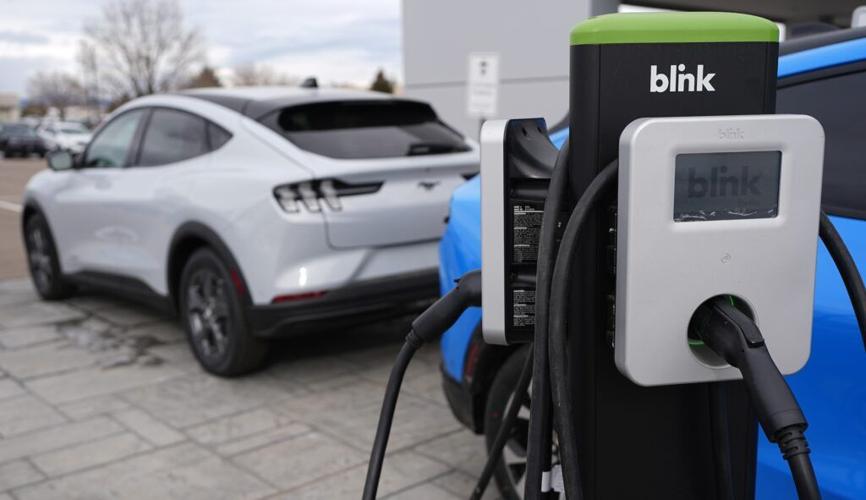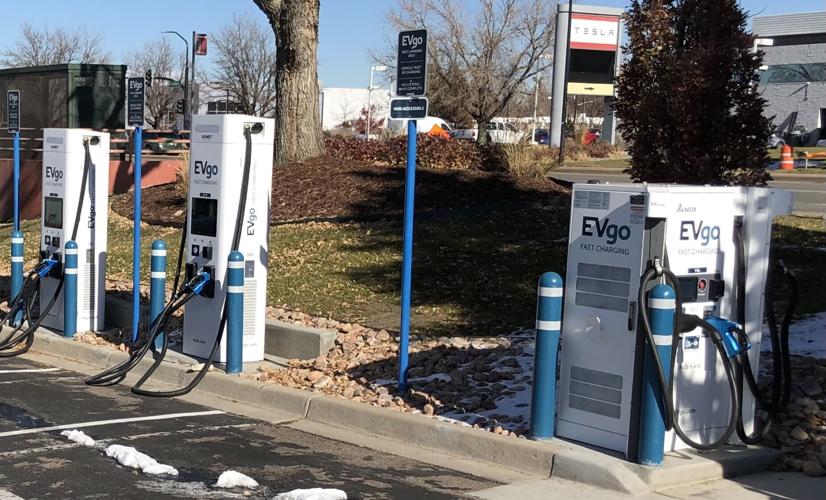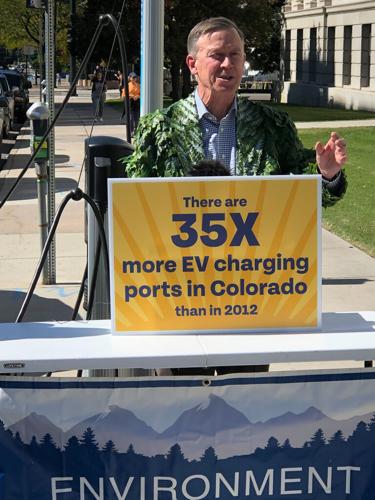Colorado granted another $17.3 million by the federal government to add more EV fast-chargers
The electric vehicle charging network in Colorado just got another $17.3 million boost to add 168 fast-charging ports at 29 sites across the state from the federal National Electric Vehicle Infrastructure Network.
The federal contribution averages just under $600,000 in public funds for each site and more than $103,000 per charging port.
“Colorado’s nation-leading adoption of electric vehicles shows just how much Coloradans understand that EVs, in addition to being reliable, save us money, improve our air quality, and help us reach our bold climate goals,” said a spokesperson for the Colorado Energy Office in a statement to The Denver Gazette. “Colorado is investing in a vast charging network to cover all four corners of our state, and fast-charging ports are a key part of this effort. Thanks to the investment of the federal government and the state’s leadership in making charging convenient, we are confident consumer demand will continue to show that EVs are here to stay.”
According to Paren, an EV charging analysis company that aggregates and provides data on EV charging, as of October 29, 2024, the full cost of a National Electric Vehicle Infrastructure Network (NEVI) project ranges from an average of $915,420 to $1,053,624. The per-port cost ranges from $183,116 to $192,614.
The company notes that these are total project costs, not how much grant applicants receive, and it’s unclear how much private investment will be required for the 29 Colorado sites.
“The highest NEVI project cost to date is nearly $3.6 million for a 4-port site in Hawaii that includes battery storage, with the lowest site cost at a Kwik Stop store in Wisconsin, for $132,480,” according to Paren. “The Sustainable Partners/Aloha Charge Honolulu site was also the highest per port cost at $895,132, while a Tesla Wisconsin site has the lowest project costs per port at $30,942.”
“Colorado is making it easier than ever to drive an electric vehicle,” said Gov. Jared Polis in a news release. “With additional federal support, we’re continuing to grow Colorado’s network of EV chargers and ensure drivers have a reliable and affordable place to charge around our state.”
The federal government has invested $33.1 million dollars in NEVI funding for Colorado’s EV charging network. The state has provided $15.7 million, according to the Colorado Energy Office (CEO).
In locating charging stations, projects in disproportionately impacted communities were prioritized to “facilitate statewide travel in an electric vehicle” and to “help improve air quality and meet charging needs in communities that currently lack access to fast and reliable EV charging.”
Fees for charging are set locally by the owners, which may be private companies or local governments.
“As of December, there were direct-current (DC) fast chargers located within 30 miles of nearly 80% of the state highway network,” according to the release.
The CEO said it expects the first of the NEVI-funded fast chargers from previous funding rounds to open in early 2025 and chargers in the current funding round to come on-line in late 2025.
The CEO plans to offer two DCFC Plazas funding rounds per year, with the next opportunity expected to open in Spring 2025.
The $48 million in NEVI funds already allocated will add 580 new ports to the state, according to the CEO.
According to the Federal Joint Office of Energy and Transportation, there are currently 411 public access DC Fast Charger station locations with a total of 1,104 ports in Colorado, with the majority being located along the Front Range.
Colorado ranks fifth state in the nation for highest numbers of EVs registered per capita, with 1,405 EVs per 100,000 residents, according to the U.S. Department of Energy. California is number one with 3,026 EVs per 100,000 residents.







